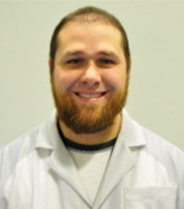Invited Opening Talk: Modern, Complex Cloned Devices: How do they Compare to Authentic Components and Traditional Counterfeits?
Nicholas Williams
Abstract: When compared to traditionally counterfeit components, clone devices represent a unique, evolving risk to the electronics parts supply chain. Traditional counterfeits begin life as authentic original component manufacture (OCM) material which is later recycled through scrapping and/or modified & misrepresented to appear as a new, unused and/or different original product. Unlike traditional counterfeits, clones are unauthorized reproductions of authentic OCM product which emulate/replicate authorized manufacture’s components. Clones are generally created using reverse engineering or through illicitly obtained OCM intellectual property. Early cloned devices were typically poorly made and could be detected using minimal counterfeit mitigation testing. Over time, clone manufactures have enhanced there capabilities to create high quality, complex clones for device types such as flash memory and microcontrollers. In some cases, clone devices can electrically out-perform authentic components rendering the clones harder to detect. This presentation will discuss the state of modern, complex cloned devices including how clone devices compare to authentic components when tested using industry standards such as AS6171.
 Bio: Dr. Nicholas Williams is the electrical test lab manager at SMT Corporation. He has been working at SMT Corporation since June of 2016, first as a senior electrical engineer and then later becoming the electrical test lab manager in October of 2019. He received his B.S. in Electrical Engineering from the University of Connecticut in 2010 and a Ph.D., in Electrical Engineering from the University of Connecticut in 2016. His Ph.D., dissertation focused on novel techniques for efficiency improvements in small scale thermoelectric devices (waste heat to electrical energy conversion).
Bio: Dr. Nicholas Williams is the electrical test lab manager at SMT Corporation. He has been working at SMT Corporation since June of 2016, first as a senior electrical engineer and then later becoming the electrical test lab manager in October of 2019. He received his B.S. in Electrical Engineering from the University of Connecticut in 2010 and a Ph.D., in Electrical Engineering from the University of Connecticut in 2016. His Ph.D., dissertation focused on novel techniques for efficiency improvements in small scale thermoelectric devices (waste heat to electrical energy conversion).
Counterfeit Symposium 2021Register Now
Top